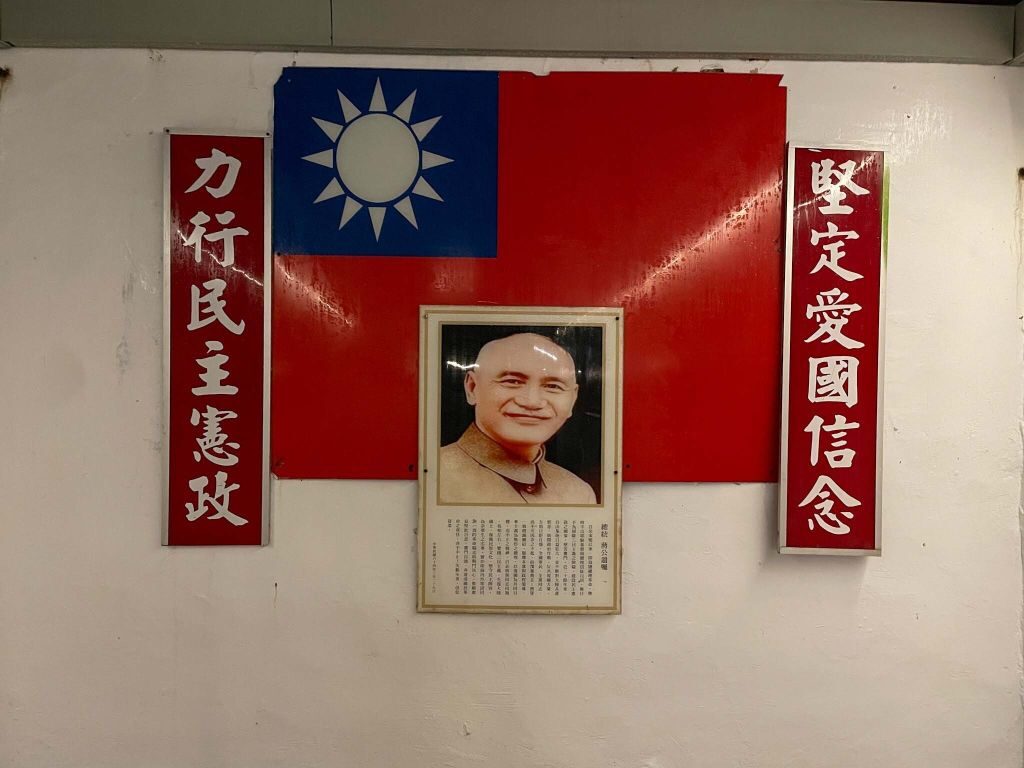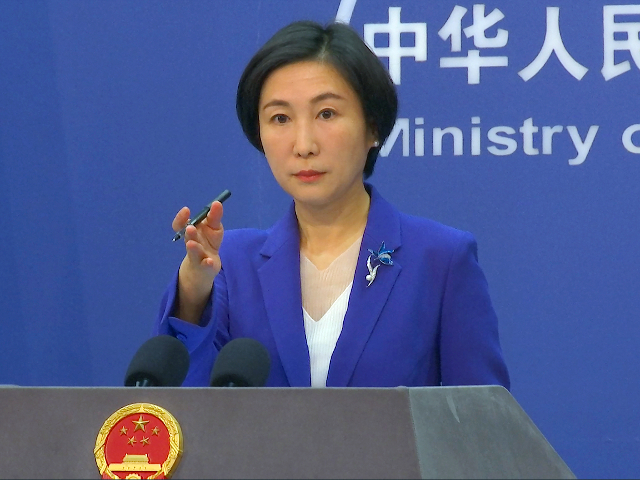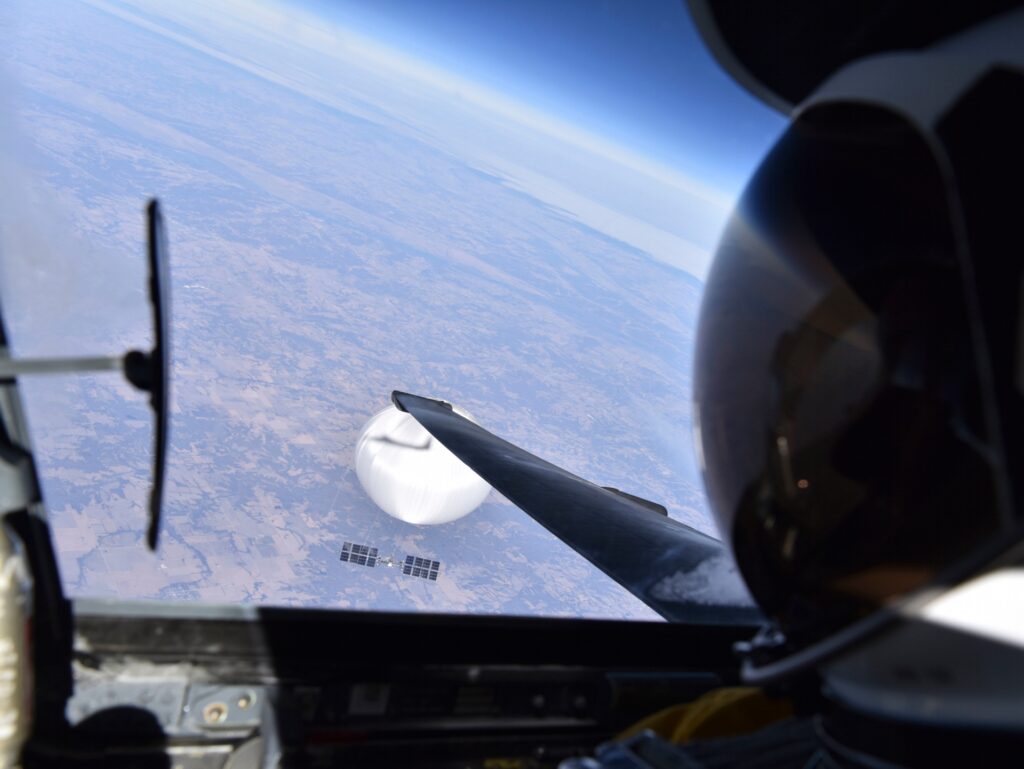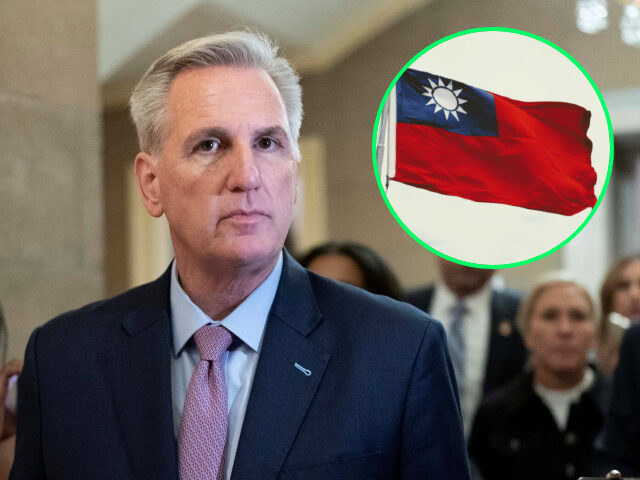The Chinese Foreign Ministry demanded on Wednesday that the government of the United States prevent any meeting between Taiwanese President Tsai Ing-wen, who is reportedly planning to stop through Los Angeles and New York in April, and House Speaker Kevin McCarthy (R-CA).
McCarthy confirmed on Tuesday that he planned to meet with Tsai during her stay in America, a stopover on her way to friendly Latin American states, and dismissed any pressure from Beijing not to do so. McCarthy also stated that meeting Tsai in America would not preclude any visit he might make to Taiwan in the future.
Taiwan is a sovereign island state off the coast of China, with a decades-long history of maintaining a fully independent elected government and no history of being ruled by any government in Beijing. The Chinese Communist Party falsely claims Taiwan as a province of China under the “One China Principle,” which states that only one China exists in the world and Taiwan, formally the Republic of China, is a Chinese province. The Taiwanese federal government, China claims, is a rogue “separatist” criminal organization.

Portrait of Chiang Kai-shek, Former President of the Republic of China, Taiwan, under the Taiwanese flag on display in a military tunnel transformed into a museum in Nangan, Matsu archipelago, Taiwan, August 30, 2022. (Photo by Walid Berrazeg/Anadolu Agency via Getty Images)
The United States formally abides by the “One China Policy,” which states that only one China exists in the world, but does not specify whether America recognizes the Republic of China or the People’s Republic of China. Washington does not have official diplomatic ties with Taiwan, a requirement to maintain formal diplomatic ties with China, but does maintain trade ties, including weapons sales, with Taiwan.
American presidents traditionally abstain from meeting their Taiwanese counterparts. In 2016, then-President-elect Donald Trump outraged China by accepting a ten-minute phone call from Tsai congratulating him on his election victory.
High-level exchanges below the office of the presidency have consistently occurred, however — often visits to Taiwan by Congresspersons sympathetic to the Taiwanese cause. Last year, McCarthy’s predecessor, Nancy Pelosi (D-CA), visited Taipei and met with Tsai, prompting months of outraged complaints from the Chinese Communist Party.

U.S. House Speaker Nancy Pelosi, center left, and Taiwanese President President Tsai Ing-wen arrive for a meeting in Taipei, Taiwan, Wednesday, Aug. 3, 2022. (Taiwan Presidential Office via AP)
Responding to a question during her daily briefing on Wednesday regarding a potential McCarthy meeting with Tsai, Chinese Foreign Ministry spokeswoman demanded it simply not happen.
“I need to stress that China firmly opposes any form of official interaction between the U.S. and the Taiwan region [sic], firmly opposes any visit by ‘Taiwan independence’ separatist leaders to the US in any name under whatever pretext,” Mao asserted, “and firmly opposes the US having any form of contact with ‘Taiwan independence’ separatist elements in violation of the one-China principle.”
Mao said China wants the United States to “stop all forms of official interaction with Taiwan, stop upgrading its substantive exchanges with the region, and stop obscuring and hollowing out the one-China principle.”
“No individual shall ever underestimate the firm resolve, staunch will and strong capability of the Chinese government and people to defend sovereignty and territorial integrity,” she threatened.

Chinese Foreign Ministry spokesperson Mao Ning gestures during a press conference at the Ministry of Foreign Affairs in Beijing, Thursday, Oct 13, 2022. (Liu Zheng, File/AP)
Mao did not clarify who in the American government Beijing would like to see intervene to “stop all forms of official interaction,” assuming McCarthy had already committed to meeting Tsai.
The Global Times, a Chinese government propaganda newspaper, repeated Mao’s statements and added commentary from regime-approved “expert” Li Haidong, a regular on its pages, who predicted that McCarthy meeting Tsai could “strike another heavy blow to China-US relations.” Li predicted unspecified “turmoil” in the relationship between Washington and Beijing, already marred by China’s rampant espionage, intellectual property theft, belligerence against U.S. allies on international waters, and introduction of slave labor into much of the American supply chain.

In this image released by the Department of Defense on Wednesday, Feb. 22, 2023, a U.S. Air Force U-2 pilot looks down at a suspected Chinese surveillance balloon as it hovers over the United States on Feb. 3, 2023. (Department of Defense via AP)
McCarthy confirmed in remarks on Tuesday that he is planning to meet Tsai, according to the Taipei Times. He emphasized that any meeting with Tsai in America should not be interpreted as a sign that he would not also eventually travel to Taiwan.
“That has nothing to do with my travel, if I would go to Taiwan,” the speaker reportedly said. “China can’t tell me where and when I can go.”
The meeting is expected to take place in early April, though a fixed date has not yet been made public.
The Taipei Times noted that the Biden administration reiterated this week, through White House communications official John Kirby, that America does “not support independence for Taiwan” and any visit to the country by Tsai is not a change in the “status quo.” Similarly, State Department spokesman Ned Price told reporters on Wednesday that “transits of the United States by high-level Taiwan officials are consistent with longstanding U.S. policy and with our unofficial and strong relations with Taiwan.”
“President Tsai herself has transited the United States six times in the last seven years. There has been absolutely no change to the U.S. ‘one China’ policy,” Price insisted.
Asked to clarify on the “one China” policy, Price said, “Our ‘one China’ policy is a key element of our efforts to preserve the status quo by adhering – always, consistently – to our ‘one China’ policy.”
Taiwan, in turn, responded with stern condemnation to China’s threats against America for welcoming Tsai.
“China has no right to finger-point about our contacts and interactions with other countries,” Douglas Hsu, head of the Taiwanese foreign ministry’s department of North American affairs, said on Thursday, according to the South China Morning Post. “President Tsai is the head of the Republic of China in Taiwan, and it is unbearable for China to smear her with foul intention.”
“Regarding the itinerary and details of the planning,” he added, “the foreign ministry will explain to the public in a timely manner after the plan is finalized.”
Follow Frances Martel on Facebook and Twitter.

COMMENTS
Please let us know if you're having issues with commenting.